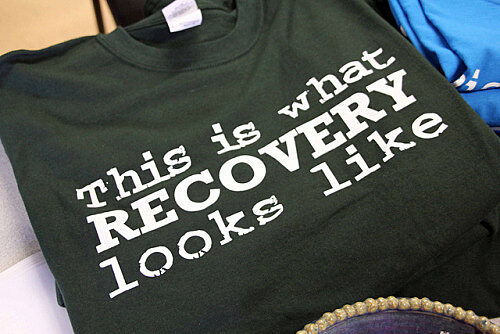How much is too much when it comes to alcohol?
For most adults, moderate drinking does not cause health problems. Moderate drinking is defined as no more than one drink a day for women and two drinks a day…

Update your location to show providers, locations, and services closest to you.
Alcohol withdrawal refers to symptoms that may occur when a person who has been drinking too much alcohol on a regular basis suddenly stops drinking alcohol.
Detoxification - alcohol; Detox - alcohol
Alcohol withdrawal occurs most often in adults. But, it may also occur in teenagers or children.
The more you drink regularly, the more likely you are to develop alcohol withdrawal symptoms when you stop drinking.
You may have more severe withdrawal symptoms if you have certain other medical problems.
Alcohol withdrawal symptoms usually occur within 8 hours after the last drink, but can occur days later. Symptoms usually peak by 24 to 72 hours, but may go on for weeks.
Common symptoms include:
Other symptoms may include:
A severe form of alcohol withdrawal called delirium tremens can cause:
Your health care provider will perform a physical exam. This may reveal:
Blood and urine tests, including a toxicology screen, may be done.
The goal of treatment includes:
INPATIENT TREATMENT
People with moderate-to-severe symptoms of alcohol withdrawal may need inpatient treatment at a hospital or other facility that treats alcohol withdrawal. You will be watched closely for hallucinations and other signs of delirium tremens.
Treatment may include:
OUTPATIENT TREATMENT
If you have mild-to-moderate alcohol withdrawal symptoms, you can often be treated in an outpatient setting. During this process, you will need someone who can stay with and keep an eye on you. You will likely need to make daily visits to your provider until you are stable.
Treatment usually includes:
It is important to go to a living situation that helps support you in staying sober. Some areas have housing options that provide a supportive environment for those trying to stay sober.
Permanent and life-long abstinence from alcohol is the best treatment for those who have gone through alcohol withdrawal.
The following organizations are good resources for information on alcoholism:
How well a person does depends on the amount of organ damage and whether the person can stop drinking completely. Alcohol withdrawal may range from a mild and uncomfortable disorder to a serious, life-threatening condition.
Symptoms such as sleep changes, rapid changes in mood, and fatigue may last for months. People who continue to drink a lot may develop health problems such as liver, heart, and nervous system disease.
Most people who go through alcohol withdrawal make a full recovery. But, death is possible, especially if delirium tremens occurs.
Alcohol withdrawal is a serious condition that may rapidly become life threatening.
Call your provider or go the emergency room if you think you might be in alcohol withdrawal, especially if you were using alcohol often and recently stopped. Call for an appointment with your provider if symptoms persist after treatment.
Go to the emergency room or call the local emergency number (such as 911) if seizures, fever, severe confusion, hallucinations, or irregular heartbeats occur.
If you go to the hospital for another reason, tell the providers if you've been drinking heavily so they can monitor you for symptoms of alcohol withdrawal.
Reduce or avoid alcohol. If you have a drinking problem, you should stop alcohol completely. Total and lifelong avoidance of alcohol (abstinence) is the safest approach.
Finnell JT. Alcohol-related disease. In: Walls RM, Hockberger RS, Gausche-Hill M, eds. Rosen's Emergency Medicine: Concepts and Clinical Practice. 9th ed. Philadelphia, PA: Elsevier; 2018:chap 142.
Kelly JF, Renner JA. Alcohol-related disorders. In: Stern TA, Fava M, Wilens TE, Rosenbaum JF, eds. Massachusetts General Hospital Comprehensive Clinical Psychiatry. 2nd ed. Philadelphia, PA: Elsevier; 2016:chap 26.
Mirijello A, D'Angelo C, Ferrulli A, et al. Identification and management of alcohol withdrawal syndrome. Drugs. 2015;75(4):353-365. PMID: 25666543 pubmed.ncbi.nlm.nih.gov/25666543/.
O'Connor PG. Alcohol use disorders. In: Goldman L, Schafer AI, eds. Goldman-Cecil Medicine. 26th ed. Philadelphia, PA: Elsevier; 2020:chap 30.





For most adults, moderate drinking does not cause health problems. Moderate drinking is defined as no more than one drink a day for women and two drinks a day…

On a sunny September day in Gainesville, more than 300 people gathered to reflect on their journey of recovery and to celebrate the renewal of life and hope…
